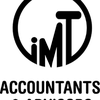Medical accounting involves managing financial transactions and records specifically for healthcare providers and organizations. Here are some best practices for medical accounting:
1.Understanding Healthcare Regulations:
Stay informed about healthcare regulations, such as the Health Insurance Portability and Accountability Act (HIPAA) and the Affordable Care Act (ACA), to ensure compliance.
2.Specialized Accounting Software:
Utilize accounting software designed for healthcare practices to streamline processes and ensure accurate record-keeping. Look for features that cater to medical billing, insurance claims, and compliance.
3.Separate Business and Personal Finances:
Maintain a clear separation between personal and business finances. This is essential for accurate financial reporting and compliance with tax regulations.
4.Accurate Coding and Billing:
Train staff to accurately code medical procedures and services to avoid billing errors. Incorrect coding can lead to claim denials and financial losses.
5.Regular Reconciliation:
Reconcile financial statements regularly to identify discrepancies and correct errors promptly. This includes bank statements, accounts receivable, and accounts payable.
6.Implement Internal Controls:
Establish internal controls to safeguard against fraud and errors. This may include segregation of duties, regular audits, and monitoring of financial activities.
7.Timely and Accurate Financial Reporting:
Generate timely and accurate financial reports to monitor the financial health of the practice. Regular financial reporting helps in making informed business decisions.
8.Budgeting and Forecasting:
Develop and maintain a comprehensive budget that includes revenue and expenses. Regularly review and adjust the budget based on performance and changes in the healthcare landscape.
9.Insurance Claim Management:
Efficiently manage insurance claims by staying up-to-date with insurance requirements and promptly submitting accurate claims. This can help in reducing claim denials and improving cash flow.
10.Staff Training:
Ensure that staff members responsible for financial tasks receive ongoing training to stay current with industry changes, regulations, and best practices.
11.Emergency Fund and Contingency Planning:
Maintain an emergency fund to cover unexpected expenses or revenue fluctuations. Develop contingency plans to address potential financial challenges.
12.Regularly Review Fee Schedules:
Regularly review and update fee schedules to ensure that they align with current market rates and cover the costs of providing services.
13.Stay Informed About Tax Laws:
Stay informed about tax laws and take advantage of any available tax incentives for healthcare providers. Consider consulting with tax professionals who specialize in healthcare.
14.Invest in Cybersecurity:
Given the sensitive nature of healthcare data, invest in robust cybersecurity measures to protect patient information and financial data.
Implementing these best practices can help healthcare providers and organizations maintain financial stability, ensure compliance, and provide quality care to patients. Keep in mind that regulations and industry standards may evolve, so staying informed and adapting practices accordingly is crucial.
Reference Link(OriginallyPosted): https://medium.com/@imtaaaau/what-are-the-best-practices-for-medical-accounting-742f0ad1c881


No comments yet